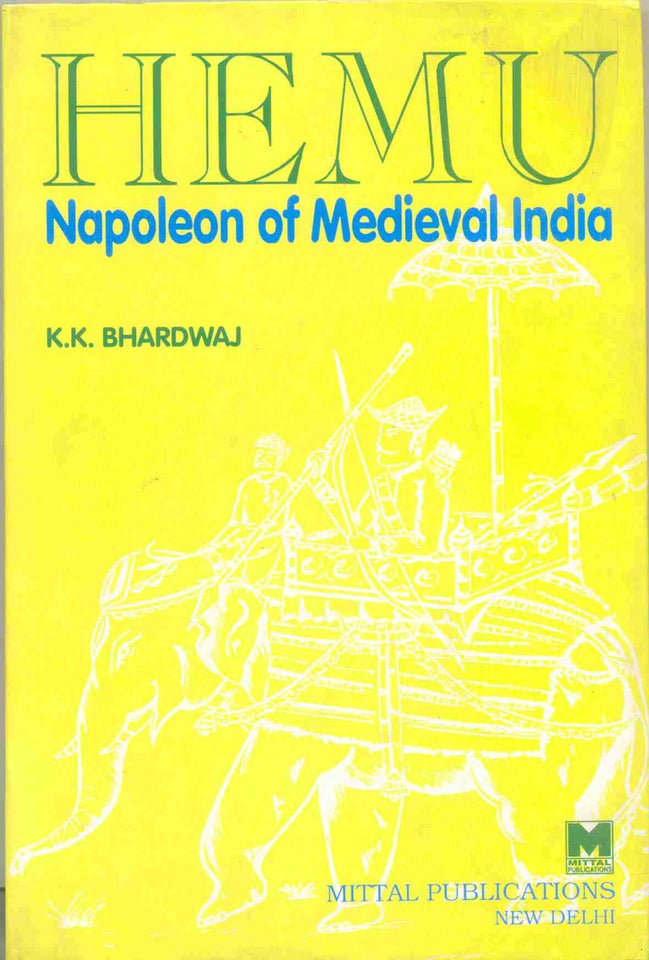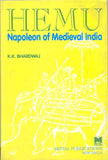Hemu-Napoleon Of Medieval India
Regular price
Rs. 295.00
The New Cambridge History of India published in 1993 records, ?Hemu, a Hindu Vaisya or a member of a literate, mercantile caste, who had risen from humble circumstances to be a general for the Sur regime, claimed royal status by employing the ancient Sanskrit title of Raja Vikramaditya. Had he succeeded this would have been a remarkable assertion of the Sanskritic/Brahamanical monarchical tradition in North India long subservient to Muslim rulers?. The career of Hemu is indeed a saga of adventure, courage and patriotism. Born in a poor family in a village in Haryana, he embarked upon the ladder of life as a salt-petre merchant in Rewari. His honesty, hard-work and fair-dealing impressed the state officials and they gave him a job of weighman. Soon they appointed him the Superintendent of Markets in the State administration. That was a golden opportunity to him to show his mettle to his royal masters and he was soon promoted as Daroga-i-Dakchoki (Superintendent of Posts and Intelligence). As various Afghan Chiefs were always planning and revolting against the emperor?s authority, Hemu as an efficient Superintendent of Intelligence could keep the emperor well-cautioned. That gave a further rise in his career, first as the Minister of Civil Supplies under Islam Shah and later as the Prime Minister under Adil Shah. As the Prime Minister of Adil Shah, Hemu was all powerful but he served his master with utmost devotion. He won twenty two battles for him. When Humayun came to India and by defeating Sikandar Sur, captured Delhi and Agra, Adil Shah sent Hemu with a large army to expel the Mughals out of India. His march from Gwalior to Agra was like Napoleon?s famous march in Italy. ?He came, he saw and he conquered.? The Mughal Governors were in fact so scared of him that they fled for safety of their lives as soon as they heard his name. At Delhi, Tardi Khan offered resistance but he was no match for Hemu and like others, fled for his life from the battlefield to join the imperial camp of Akbar. Hemu triumphantly entered Delhi, and assumed the title of Vikramaditya, the legendary King of Hindu glory. The Mughals could not take thus lying down and the second battle of Panipat was fought on November 5th, 1556 for the sovereignty of Hindustan. Hemu was almost on the verge of victory when a stray arrow pierced his eye and he became unconscious. That made his army disheartened and the battle was lost. Thus failed Hemu?s heroic attempt to establish Hindu Raj in India. In his study entitled ?Hemu?s Heroic attempt to establish Hindu Raj in Medieval India? Shri K.K. Bhardwaj has made this account very illuminative and interesting.
Guaranteed Safe Checkout





